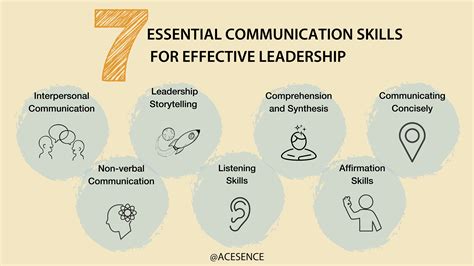Effective communication is the backbone of any successful organization. As a manager, it's crucial to possess excellent communication skills to convey your vision, goals, and expectations to your team members, stakeholders, and clients. In this article, we'll explore the importance of managerial communication, its benefits, and provide actionable strategies to enhance your communication skills.

Why Managerial Communication Matters
Managerial communication is a vital aspect of leadership, as it sets the tone for the entire organization. When managers communicate effectively, they can:
- Inspire and motivate their teams to work towards a common goal
- Build trust and credibility with stakeholders and clients
- Resolve conflicts and address issues promptly
- Foster a positive and inclusive work culture
- Drive business growth and success
The Benefits of Effective Managerial Communication
Effective managerial communication offers numerous benefits, including:
- Improved productivity and efficiency
- Enhanced collaboration and teamwork
- Increased employee engagement and job satisfaction
- Better decision-making and problem-solving
- Improved customer satisfaction and loyalty
Key Strategies for Effective Managerial Communication
To become a more effective communicator, follow these strategies:
1. Active Listening
Active listening is a crucial aspect of effective communication. When interacting with team members, stakeholders, or clients, make sure to:
- Give them your undivided attention
- Maintain eye contact and non-verbal cues
- Paraphrase and summarize what they say to ensure understanding
- Ask open-ended questions to encourage feedback and discussion

2. Clear and Concise Messaging
When communicating with your team or stakeholders, ensure your message is clear, concise, and easy to understand. Avoid using jargon or technical terms that may confuse others.
- Use simple and straightforward language
- Avoid ambiguity and clarify expectations
- Provide specific examples and illustrations to support your message
- Use visual aids like charts, graphs, or diagrams to enhance understanding
3. Emotional Intelligence
Emotional intelligence is the ability to recognize and understand emotions in yourself and others. Developing emotional intelligence can help you become a more effective communicator.
- Recognize and acknowledge emotions in others
- Empathize with team members and stakeholders
- Manage your own emotions to maintain a positive tone
- Use positive language and non-verbal cues to create a welcoming atmosphere
4. Feedback and Coaching
Providing regular feedback and coaching is essential for team growth and development. Use the following strategies to provide constructive feedback:
- Focus on specific behaviors or actions
- Use the sandwich method to provide feedback (positive-negative-positive)
- Offer actionable suggestions for improvement
- Encourage self-reflection and self-improvement
5. Technology and Digital Communication
In today's digital age, technology plays a significant role in communication. Use the following strategies to enhance your digital communication:
- Use collaboration tools like Slack or Trello to facilitate team communication
- Leverage video conferencing tools like Zoom or Skype for remote meetings
- Use email and instant messaging to convey quick updates or messages
- Develop a company intranet or blog to share news and updates

Overcoming Communication Barriers
Despite your best efforts, communication barriers may still arise. Use the following strategies to overcome common communication barriers:
- Language barriers: Use interpreters or translation tools to facilitate communication
- Cultural barriers: Be sensitive to cultural differences and adapt your communication style
- Physical barriers: Use technology to facilitate remote communication
- Emotional barriers: Use emotional intelligence to recognize and address emotional issues

Conclusion
Effective managerial communication is a critical aspect of leadership, driving business success and growth. By implementing the strategies outlined in this article, you can become a more effective communicator and inspire your team to work towards a common goal. Remember to stay flexible and adapt your communication style to overcome barriers and challenges.






What is the importance of managerial communication?
+Managerial communication is crucial for conveying vision, goals, and expectations to team members, stakeholders, and clients. It sets the tone for the entire organization and drives business success and growth.
How can I improve my managerial communication skills?
+Implement strategies such as active listening, clear and concise messaging, emotional intelligence, feedback and coaching, and leveraging technology and digital communication.
What are some common communication barriers, and how can I overcome them?
+Common communication barriers include language, cultural, physical, and emotional barriers. Use strategies such as interpreters, cultural sensitivity, technology, and emotional intelligence to overcome these barriers.
